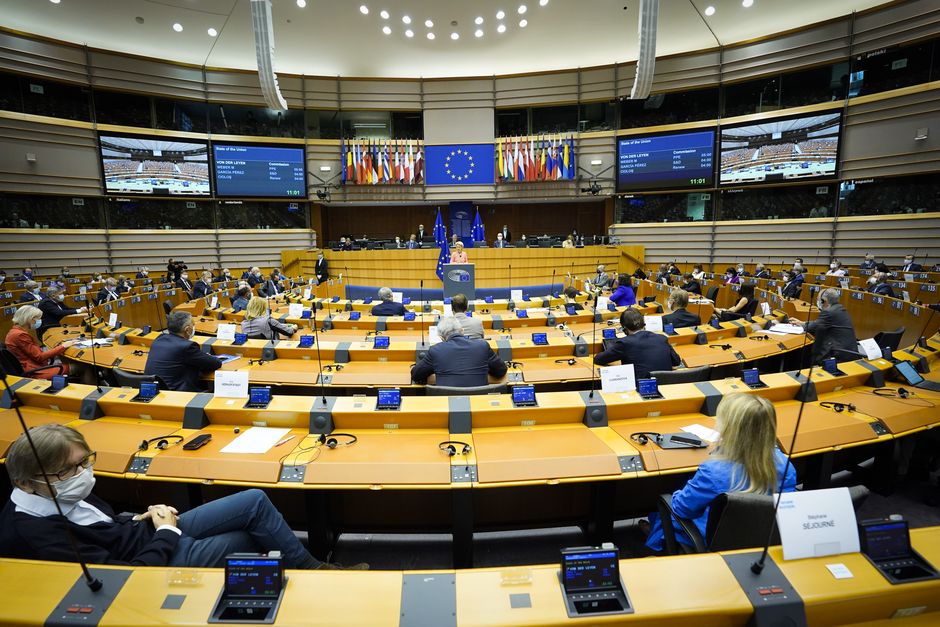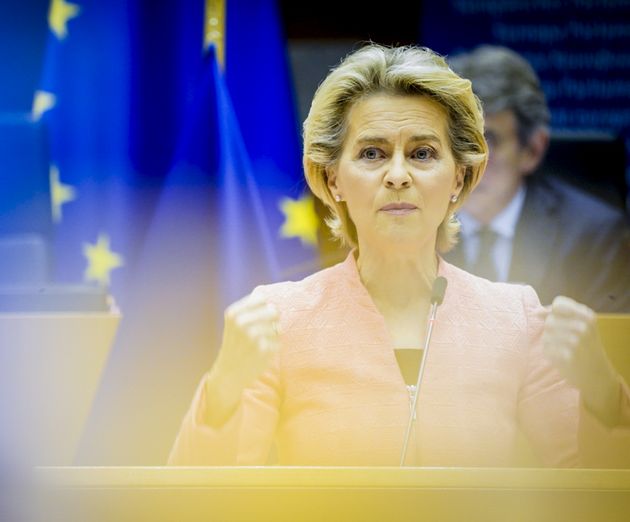Three “enduring promises” for Europe: protection, stability and opportunity
In her State of the (European) Union, the President of the European Commission, Ursula von der Leyen, unfolded an ambitious ‘post-COVID-19’ plan for Europe and beyond.
16 SEPTEMBER 2020 · 19:00 CET

Facing an almost empty plenary room in Brussels, Ms. Ursula von der Leyen, the President of the European Commission, addressed (some) masked Members of the European Parliament to present her State of the Union (SOTEU).
In front of thousands of laptop, cellphone and tablet screens, the rest of MEPs and a few European citizens followed this speech, which could not possibly have been bland.
According to the SOTEU website, in this annual event, “the European Commission demonstrates its accountability to EU’s democratic elected representatives”. In the past year, the EC has faced, and sometimes overcome, many challenges but many more lie ahead.
Ms. Von der Leyen indeed had to re-gain the confidence of her audience and offered an ambitious plan “to get [Europe] back to its feet”.
She started by vowing three “enduring promises”: protection, stability and opportunity during and after the COVID-19 crisis, and asking EU’s Member States to pull together to make this a reality.
Whereas during the past year much of von der Leyen’s “electoral” promises had to be pushed aside or delayed, she came back to them insisting on the urgency of taking action for the future of the planet.
Her tool for change is the EU Green Deal, which was published in December last year. News was, however, the announcement of the 55% reduction in gas emission by 2030, a target which does not satisfy any side of the spectrum. Not enough or too much. She nevertheless promised to leave no one behind in this “green transformation” …
For von der Leyen, Europe has no future if it does not become digital, but with “clear principles: the right to privacy and connectivity, freedom of speech, free flow of data and cybersecurity”, she qualified.

That is why she proposed an “European e-identity” which would allow to “control ourselves what data and how data is used.”
Beyond European borders, the EC President aligned with the discourse of the EU’s High Representative, Mr Josep Borrell, advocating for the revitalization of multilateralism and voicing a strong message against China as “there is no doubt that we promote very different systems of governance and society”.
Russia and Belarus were not spared either, as she said Europe stood with “the people of Belarus”, and strongly condemned election meddling and the poisoning of the opposition leader Alexei Navalny.
She continued by pointing fingers at Member States who “say Europe is too slow” and called them to “be courageous and finally move to qualified majority voting – at least on human rights and sanctions implementation.”
Finally, she talked of a “humane approach” when addressing migration and racism and discrimination. She deplored the lack of compromises by the Member States on the migration crisis for the last decade and insisted that “saving lives at sea is not optional”.
She also proposed the appointment of an anti-racism coordinator and to “extend the list of EU crimes to all forms of hate crime and hate speech – whether because of race, religion, gender or sexuality”.
She ended her 70-minute address with a call to stop “talking it [Europe] down” and a “long live Europe!”
You can read the whole SOTEU Address here.
Published in: Evangelical Focus - europe - Three “enduring promises” for Europe: protection, stability and opportunity
